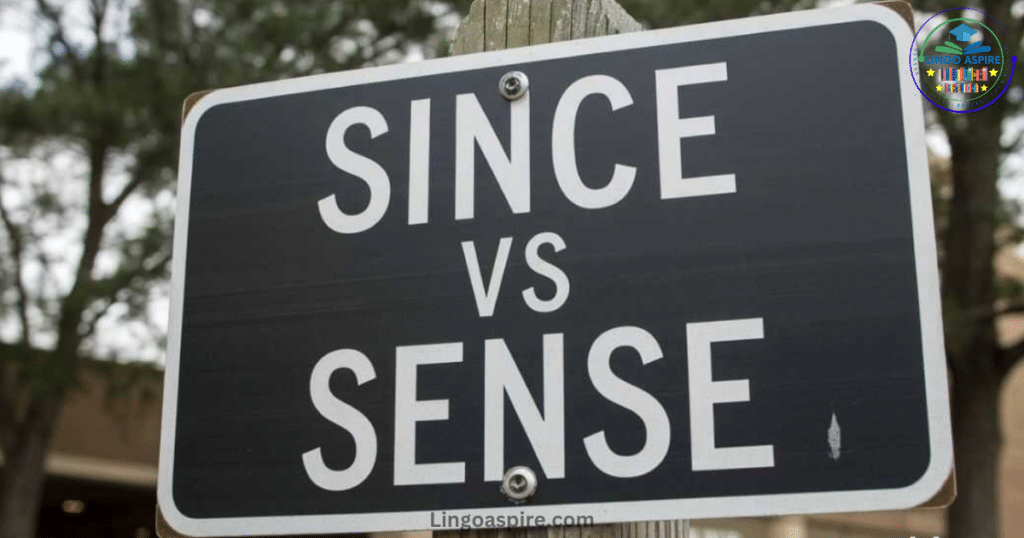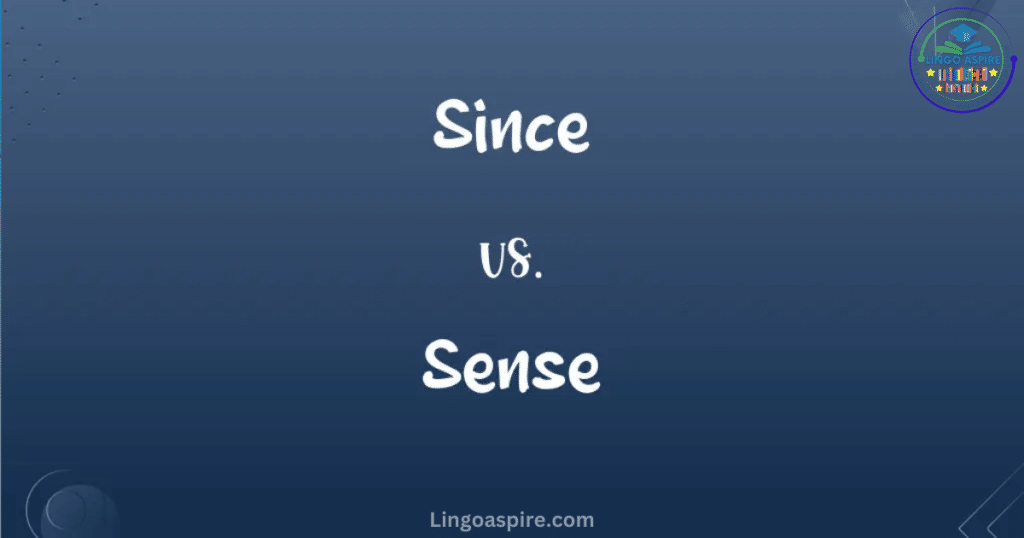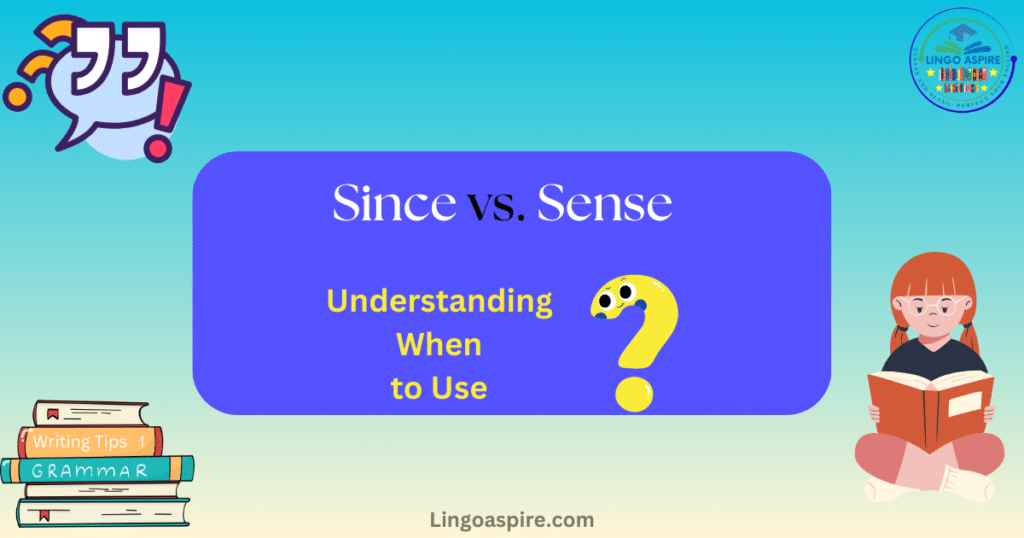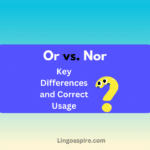Understanding the difference between since vs. sense can be tricky for many people. While they may seem similar, these two words have distinct meanings and uses in the English language. In this article, we’ll explore the meanings of since and sense, when to use them, and how to avoid common mistakes. We’ll also look at some of the misused word pairs and provide practical grammar tips to help you use these words correctly.
Defining Since vs. Sense

To begin, it’s essential to understand what each word means. While since often refers to time or reason, sense is linked to perception and understanding. These different meanings affect how and when you use each word in a sentence.
What Does “Since” Mean?
Since can function in several ways: as a conjunction, preposition, or adverb. When used as a conjunction, since typically connects a cause or reason with a result. It can also express a time-related idea, marking the starting point of an event or condition. For example, “I haven’t seen you since yesterday” refers to a specific time in the past.
As a preposition, since often shows the duration of time that has passed. For instance, “I have lived here since 2005″ refers to the starting point of a specific event. In its adverb form, since can show a time frame without mentioning the subject directly. For example, “He left a long time since” gives the sense of a long past event.
What Does “Sense” Mean?
On the other hand, sense has more to do with perception, understanding, and logical meaning. As a noun, sense refers to physical sensory perception, like sight, hearing, or smell. You can also use sense to describe someone’s understanding or awareness, as in “She has a good sense of humor.”
As a verb, sense means to perceive something or detect a situation, like “I can sense the tension in the room.” It also plays an important role when referring to logical meaning or understanding. For example, “This idea doesn’t make any sense.”
The Versatility of “Since”
The word since can be used in a variety of ways, but its main function is to show time-related phrases or to explain reason and cause. Let’s explore how since is used in different contexts.
As a Conjunction
When since is used as a conjunction, it typically connects two clauses to show a relationship between time or cause and effect. For example:
- “I have been studying English since I was a child.” Here, since shows the point in time when the studying started.
- “She felt tired since she hadn’t slept well.” This usage explains the cause of her tiredness.
In both cases, since links a time marker or cause with a result.
As a Preposition
As a preposition, since shows the time that has passed from a certain event. It helps us describe the duration of an event, as in:
- “We have been waiting since 10 AM.”
- “She has worked here since last year.”
In both sentences, since expresses the duration between the present moment and a starting point in the past.
The Many Meanings of “Sense”
Sense is a word that carries a lot of weight when it comes to understanding and perception. Depending on how it’s used, it can refer to physical sensation, logical understanding, or even deeper emotional feelings.
As a Noun
As a noun, sense often refers to the ability to perceive the world through our senses. For example:
- “He has a sharp sense of smell.”
- “She could hear a noise, but it didn’t make much sense.”
In these examples, sense shows either the ability to detect something or the clarity of understanding.
As a Verb
As a verb, sense means to perceive something, often beyond the physical realm. For example:
- “I can sense that something is wrong.”
- “He sensed her discomfort.”
In these examples, sense refers to the ability to detect or feel an emotion, a situation, or a change in circumstances, even if it’s not immediately obvious.
Since vs. Sense – Key Differences

Although since and sense might look similar, they have very different functions in a sentence. Understanding their differences can help you use these words more effectively.
“Since” as a Time Traveler (or Reason Giver)
The word since is often used to express time and duration. For example, it can show how long something has been happening or when something started:
- “He left since yesterday.” (Time)
- “She was late since the train was delayed.” (Reason)
In these examples, since shows when something happened or the cause of an action.
“Sense” as Your Internal Compass
On the other hand, sense refers to things like perception, feeling, or understanding. It can be used to express how we understand the world around us or detect things beyond the physical realm:
- “I can sense you’re upset.”
- “The answer doesn’t make sense to me.”
In both cases, sense refers to our internal perception or logical understanding of a situation.
Putting it into Practice: Makes Sense or Since?
One of the most common questions when learning the difference between since and sense is knowing when to use one over the other.
For instance, “It makes sense” means something is logical or easy to understand. On the other hand, saying “It since makes sense” would be incorrect.
You can use since to show time or reason:
- “She has been studying since last year.”
- “He is late since his car broke down.”
Sense, however, is used when describing an understanding or feeling:
- “I don’t think this situation makes any sense.”
- “Can you sense the excitement in the room?”
Examples in Context
“Since” (Time and Reason)
Since is often used to mark time or show the reason for an action. Here are a few examples:
- “I’ve known him since childhood.” (Time)
- “He didn’t go to work since he was feeling sick.” (Reason)
Both sentences use since to link a time or reason with an event.
“Sense” (Understandings and Feelings)
Sense can refer to either understanding or emotional feelings. Here are some examples:
- “I can sense that you are upset.” (Perception)
- “This article doesn’t make any sense to me.” (Understanding)
In these examples, sense describes a feeling or understanding about a situation.
Alternative Words for Since vs. Sense
In many cases, you can replace since and sense with other words to add variety or adjust the meaning slightly. Here are some alternatives:
“Since” Alternatives
- When indicating time: “After,” “from,” “as of”
- When indicating reason: “Because,” “due to,” “as”
“Sense” Alternatives
- When referring to perception or feeling: “Perception,” “awareness,” “feeling”
- When referring to meaning or understanding: “Understanding,” “significance,” “intelligence”
Origins and Etymology of Since vs. Sense
The words since and sense have fascinating histories. Since comes from the Latin word “sindere,” meaning “from the time of.” It originally referred to a point in time and has kept that meaning over the centuries.
Sense, on the other hand, comes from the Latin “sensus,” meaning perception or feeling. This word has evolved to include both physical perception (like the five senses) and abstract ideas, such as logical understanding.
Common Mistakes with Since vs. Sense
One of the biggest reasons since and sense are often confused is their similar sounds and spellings. However, their meanings are distinct, and using one in place of the other can lead to confusion.
Why Are Since vs. Sense Misused?
The confusion typically arises because both words can deal with time and understanding but in different contexts. When we want to talk about time, we might accidentally use “sense” instead of “since,” and vice versa.
Guidance for Content Writers
For content writers, using since and sense correctly is essential for maintaining clarity and precision. Misused words can confuse readers and affect the user experience. Always double-check your writing and make sure you’re using the correct word in context.
Can “Since” and “Sense” Be Used Together in a Sentence?
While it’s unusual, there are cases where since and sense can appear in the same sentence. However, they will typically refer to different concepts. For example:
- “Since the idea didn’t make any sense, I had to explain it again.”
This sentence uses both words correctly, showing that since refers to time or reason, and sense refers to understanding.
Conclusion
In summary, understanding the difference between since and sense is essential for improving your English grammar. While since primarily deals with time and reason, sense focuses on perception and understanding. By practicing these differences, you’ll be able to use both words correctly and avoid common mistakes in your writing.
Whether you’re writing a blog post, an essay, or any other content, making sure you use the correct word will improve the clarity of your message and enhance your writing.
Sources
- Merriam-Webster Dictionary – Since vs Sense
- Cambridge Dictionary – Since vs Sense
- Oxford English Dictionary – Since and Oxford English Dictionary – Sense
These sources provide detailed explanations and examples of each word’s usage, helping clarify any confusion between them.







